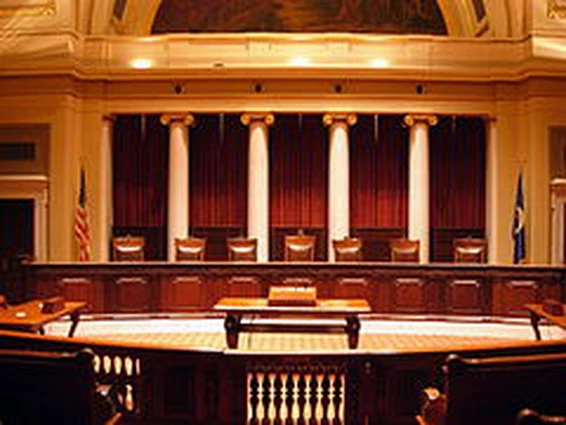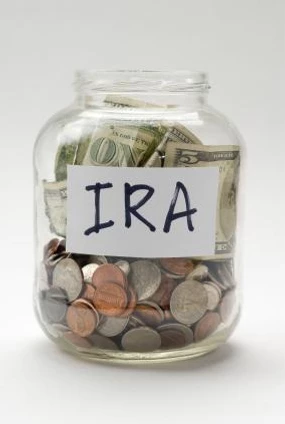
5 Ways to Fight Murphy’s Law in your Estate Planning
April 9, 2019
Beware: Recent Case Law Says Creditors Can Get to Inherited IRAs
May 9, 2019
5 Ways to Fight Murphy’s Law in your Estate Planning
April 9, 2019
Beware: Recent Case Law Says Creditors Can Get to Inherited IRAs
May 9, 2019
A Stand-Alone Retirement Trust is a trust designed to receive tax deferred assets, also known as qualified funds, like IRAs, 401(k)s, 403(b)s, etc. Some financial advisors may tell you not to designate a trust as the beneficiary of your retirement accounts, but in cases where a Retirement trust is used this is not the right advice. First, you need to understand why an advisor advises against designating your trust as a beneficiary of your retirement, then it will be easier to determine whether a Retirement Trust could be an important for your estate plan.
Why Shouldn’t I Designate my Trust as the Beneficiary of My 401(k)?
An advisor may tell you not to designate your trust as a beneficiary of your 401(k) because it will trigger what is know as “The Five-Year Payout Rule.” The thing that is unique about qualified funds is that the taxes have not yet been paid on these accounts because the idea behind these retirement accounts is that you will be able to put in tax free dollars into in an account and let it grow. When you retire and (probably) have a lower income, you can pull these funds and pay taxes at this lower rate because you have less income than in your earning years.
If you designate an individual as the beneficiary of your tax-deferred account, it is possible for them to take an “inherited IRA” (or a “spousal rollover” for your spouse). In an inherited IRA, it is possible for the beneficiary to continue to defer the taxes on those assets. This way they can work together with their accountant to make wise decisions on when to pull assets out of the IRA to minimize taxes. If you designate your normal run-of-the-mill trusts as the beneficiary, the IRS code says that all the taxes will come due in a five-year period. This is what is referred to as the five-year payout rule.
If you have a large amount of assets in tax-deferred dollars, triggering the five-year payout rule could mean serious tax consequences. If you do not have a large amount in tax deferred amounts you may not care all that much about the small tax consequences. If your beneficiaries receive large gifts from you in the form of tax-deferred dollars, it may bump them into a higher tax bracket because they will have to report that gift as income.
Why Should I designate my Trust as the beneficiary of My 401(k)?
There are 4 reasons that you may want to designate a trust as the recipient of your tax deferred account.
First, if it is possible that minors will be the beneficiaries of your tax deferred accounts, you want to pass that money through a trust so that you can put the right people in charge of the finances. If you designate a minor as the beneficiary of tax-deferred dollars, the court will appoint a financial guardian for your children. As soon as that minor is of age, age eighteen, they will receive the remainder of the funds outright. This may not be the plan that you want for your children because they will not be ready at age eighteen to invest the money wisely.
Second, if you are in a blended family, you may want to control the assets upon the death of the second spouse. You may want to set up a plan where your spouse receives money from the tax-deferred dollars until that spouse dies and then the money goes to your children and not your step children. If you simply name your spouse as the primary beneficiary of your account, most likely the primary beneficiary of your spouse’s account will be their children, not yours. To keep from inadvertently disinheriting your children, you may want to keep control of those funds in a trust.
Third, if you have a problem beneficiary, you may want to appoint a trustee to take care of the assets for your beneficiary. There are special types of retirement accounts that can pool the money and not disperse the assets to the beneficiary until the trustee deems it time. This can also be set up with mandatory drug screenings, etc. to better fulfill your desires of how the money is distributed.
Fourth, and finally, many of my clients want to set up a Lifetime Beneficiary Protection Trust. These types of trusts allow the beneficiary to act as trustee over their own assets but are not technically their money. These assets are in trust for their benefit. This means that if these beneficiaries have financial troubles and file bankruptcy, these assets are not subject to their creditors, if these beneficiaries get a divorce, these assets are not subject to the divorce court, and if these beneficiaries get into a car accident and are sued, these assets are not subject to that lawsuit.
You might think to yourself, but don’t IRAs and 401(k)s have creditor protection already? It is true that regular IRAs have asset protection, but inherited IRAs do not. In a 2013 Supreme Court decision, Clark v. Rameker, the court decided that since inherited IRAs do not have the same 10% penalty for early withdrawal, they would not be treated like other investment accounts and would not receive asset protection. However, holding these assets in a trust can give these assets protection.
Why a Retirement trust?
Enter, the retirement trust: The best of bother worlds. The reason it is the best of both worlds is because it qualifies for asset protection and more control in all the four reasons listed above, but it also is set up in a way where the IRS “looks through” the trust to see the ultimate beneficiary. This means that the taxes can continue to be deferred over the lifetime of the beneficiary.
If a retirement trust interests you, call us to see if it is the right fit for you, (951) 516-2292.



